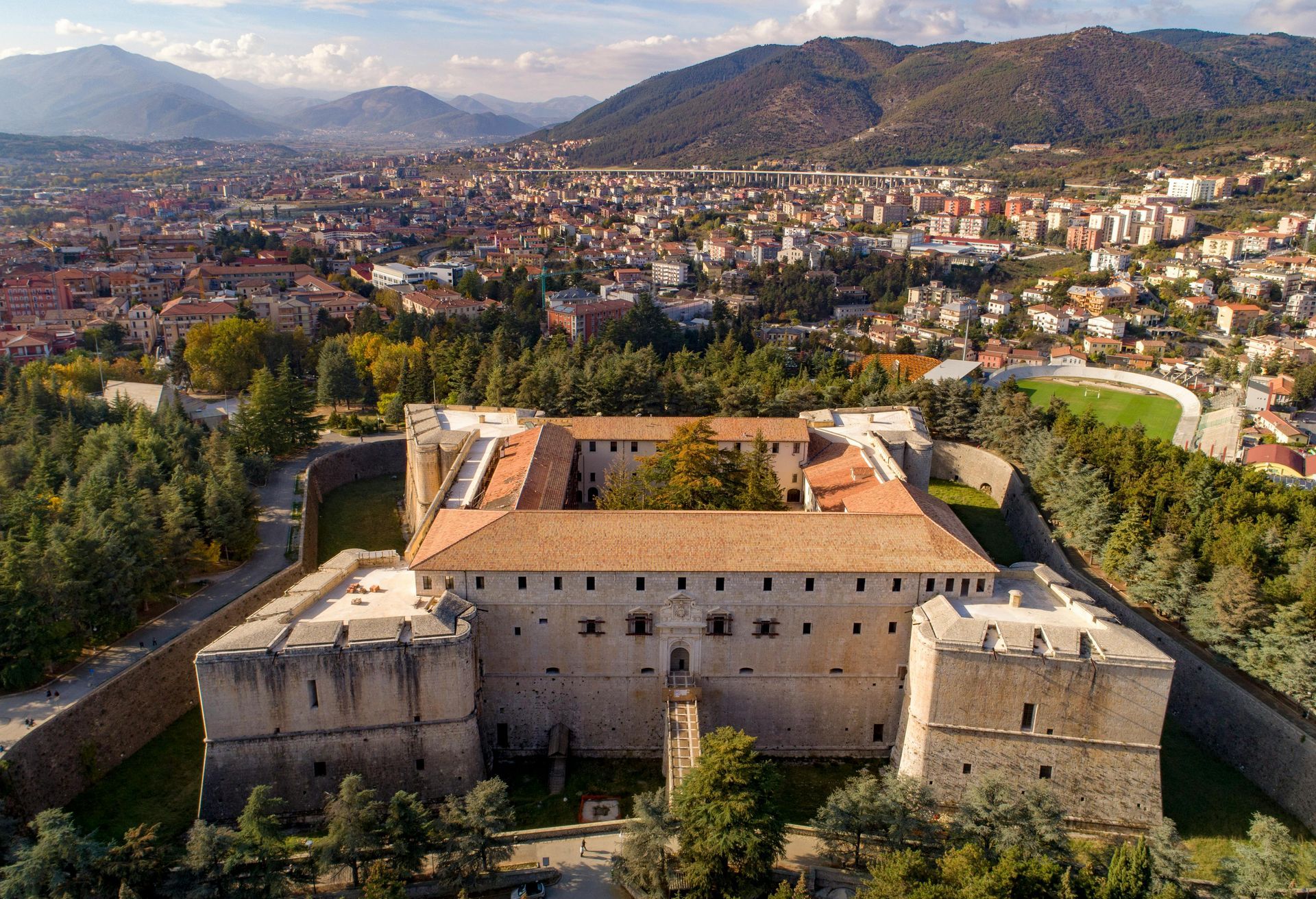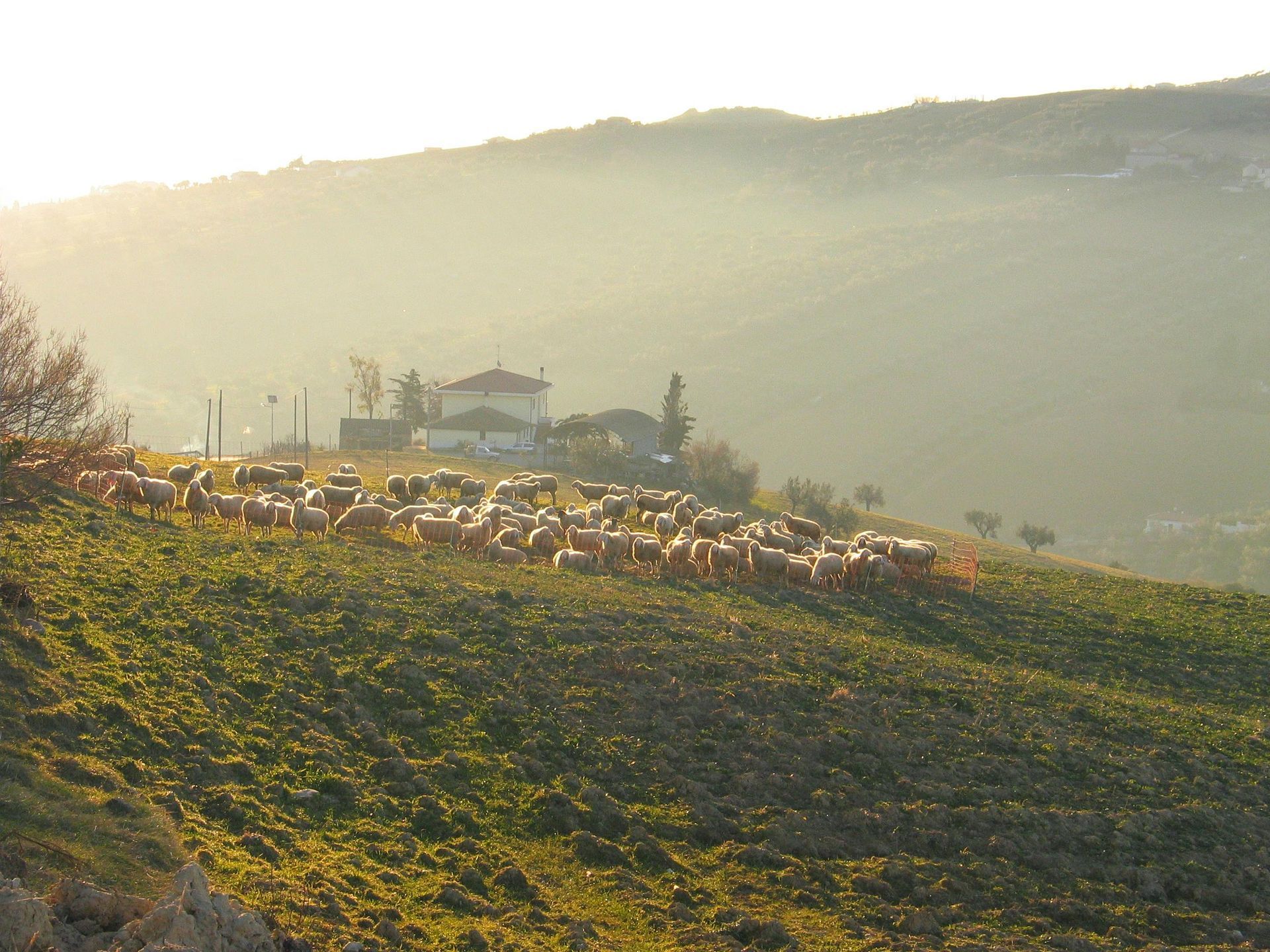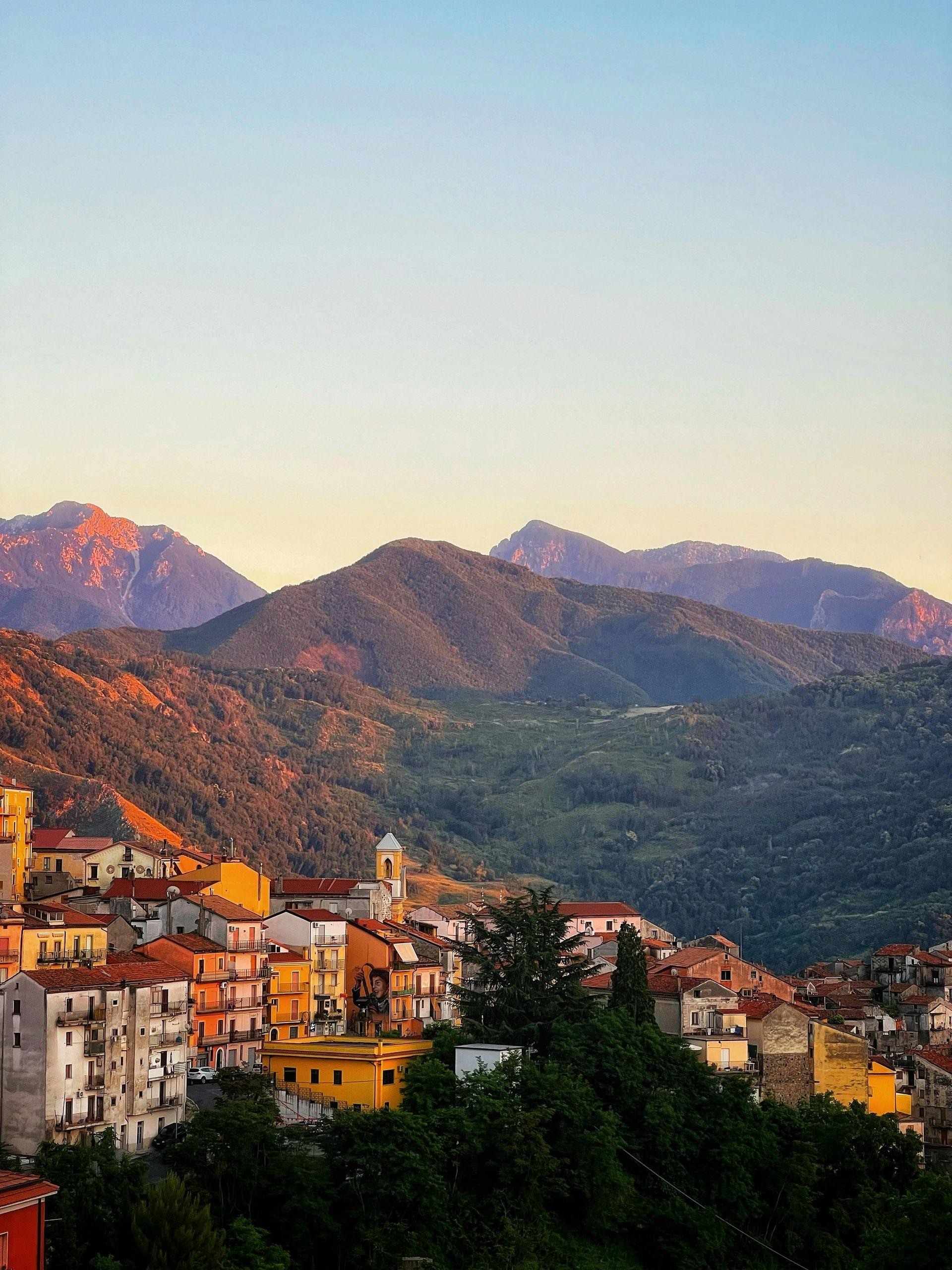Beyond the Crowds: Why Conscious Travelers Are Choosing Abruzzo Over Italy's Tourist Hotspots
Discover how authentic travel experiences in Abruzzo create meaningful connections while avoiding the overtourism plaguing Italy's famous destinations
While millions of tourists crowd into Venice, Florence, and the Cinque Terre, a different kind of traveler is discovering Italy's best-kept secret just two hours east of Rome. Abruzzo offers everything that draws people to Italy—stunning landscapes, rich cultural heritage, exceptional cuisine, and warm hospitality—but without the overwhelming crowds, inflated prices, and commercialized experiences that increasingly define mainstream Italian tourism.
This isn't about discovering hidden gems before they become popular; it's about choosing a fundamentally different approach to travel that prioritizes meaningful experiences over Instagram moments, authentic connections over convenience, and sustainable practices over exploitation. For conscious travelers seeking the real Italy, Abruzzo represents an alternative that benefits both visitors and local communities while preserving the very qualities that make travel transformative.

The Hidden Costs of Overtourism
Italy's most famous destinations struggle under the weight of mass tourism that threatens to destroy the very qualities that attract visitors. Venice receives over 25 million tourists annually—more than 1,000 times its permanent population. The Cinque Terre limits daily visitors to protect fragile coastal infrastructure. Florence's historic center increasingly resembles an outdoor shopping mall where authentic local life has been displaced by tourist services.
These destinations face what economists call the "tourist trap paradox"—success breeds more success until the destination becomes a victim of its own popularity. Local residents flee rising rents and noise pollution, traditional businesses close to make way for souvenir shops and chain restaurants, and the authentic culture that originally attracted visitors disappears beneath layers of commercialization.
The environmental costs prove equally devastating. Cruise ships disgorge thousands of passengers for brief shore excursions that maximize consumption while minimizing cultural engagement. Bus tours ferry visitors between predetermined stops, creating economic benefits for tour operators while providing little value for local communities. The carbon footprint of this mass movement defies any claim to sustainable travel.
Abruzzo offers a compelling alternative precisely because it has avoided this destructive cycle. Here, tourism remains at levels that support rather than overwhelm local communities. Visitors encounter authentic daily life because it continues to exist alongside rather than being displaced by tourism. The experience feels genuine because it is genuine—not a recreation of Italian culture but the living reality of contemporary Italian life.
What Authentic Travel Actually Means
Authentic travel has become a marketing buzzword often used to describe experiences that are merely less commercial than obvious tourist traps. True authenticity in travel means encountering places and people as they actually exist rather than as they've been packaged for consumption. It requires travelers to approach destinations with curiosity, respect, and willingness to engage with different ways of life.
In Abruzzo, authenticity manifests in countless small details that mass tourism destinations have lost. Morning markets sell produce to local families, not tourist groups. Restaurants serve food that local people actually eat, prepared by chefs who learned from their grandmothers rather than culinary schools. Festivals celebrate community traditions rather than performing culture for visitor consumption.
This authenticity isn't accidental—it reflects conscious choices by both communities and tourism operators to prioritize preservation over profit maximization. Local authorities regulate development to prevent the displacement of residents and traditional businesses. Tourism operators focus on quality experiences rather than volume, creating sustainable businesses that enhance rather than exploit local culture.
The result is travel experiences that feel natural rather than staged. Conversations with locals occur organically rather than being facilitated by tour guides. Discoveries happen through exploration rather than following predetermined itineraries. Visitors leave with understanding rather than just photographs, carrying memories of genuine human connections rather than simply ticking destinations off bucket lists.
The Social Impact of Conscious Travel Choices
Every travel decision creates ripple effects that extend far beyond the immediate experience. Choosing mass tourism destinations concentrates visitor spending in already-saturated areas while neglecting regions that could benefit from sustainable tourism development. This concentration exacerbates regional inequalities and prevents tourism from fulfilling its potential as a tool for balanced economic development.
Mass tourism also tends to extract value from destinations rather than creating sustainable local benefits. Large tour operators, international hotel chains, and global booking platforms capture significant portions of tourism revenue, leaving relatively small percentages for local communities. This extraction model treats destinations as resources to be exploited rather than places where people live and work.
Conscious travel in regions like Abruzzo creates different economic patterns that distribute benefits more equitably. Staying in locally-owned accommodations, eating at family-run restaurants, and purchasing handmade products ensures that tourism spending directly supports community members. These businesses typically source goods and services locally, creating multiplier effects that strengthen entire regional economies.
The social benefits extend beyond economics to include cultural preservation and community pride. When tourism celebrates and supports local traditions, it provides incentives for younger generations to maintain cultural knowledge and practices that might otherwise disappear. This cultural continuity strengthens community identity while creating attractions that don't depend on external resources or artificial constructions.
Environmental Responsibility Through Travel Choices
Sustainable travel requires consideration of environmental impacts throughout the entire journey, from transportation to accommodation to activities. Mass tourism's environmental footprint includes not just the obvious impacts of transportation and accommodation but also the infrastructure development, resource consumption, and waste generation that high-volume tourism demands.
Abruzzo's approach to tourism development prioritizes environmental protection through the region's extensive network of national parks and nature reserves. Tourism infrastructure must meet strict environmental standards, while activities emphasize observation and appreciation rather than consumption or modification of natural environments. This creates tourism experiences that depend on environmental preservation rather than threatening it.
Transportation represents one of travel's largest environmental impacts, but Abruzzo's accessibility from major European cities makes it reachable without excessive travel. The region's compact size allows visitors to explore extensively while minimizing internal transportation. Many accommodations offer bicycle rentals or shuttle services that reduce individual vehicle use.
Local food systems in Abruzzo provide environmental benefits that extend beyond reduced transportation emissions. Traditional agriculture maintains crop diversity, supports soil health, and creates habitats for wildlife that industrial farming destroys. Choosing restaurants that source locally grown ingredients supports these sustainable agricultural practices while providing superior dining experiences.
Economic Models That Support Communities
Sustainable tourism requires economic models that create benefits for local communities rather than extracting value for external operators. Abruzzo's tourism economy demonstrates how smaller-scale, higher-value tourism can provide better outcomes for both visitors and residents than mass tourism approaches.
The region's agriturismo network exemplifies sustainable tourism economics. These farm-based accommodations generate income that supports traditional agriculture while providing authentic experiences for visitors. Guests observe or participate in farm activities, eat meals prepared with farm-grown ingredients, and learn about sustainable agricultural practices. This model creates economic incentives for maintaining traditional land use while providing memorable experiences that connect visitors to place and practice.
Artisan workshops throughout Abruzzo demonstrate how traditional skills can generate tourism revenue while preserving cultural knowledge. Visitors pay for authentic learning experiences that support master craftsmen while ensuring knowledge transmission to younger generations. These economic relationships create sustainable livelihoods that might not exist without tourism support.
Local festivals and cultural events in Abruzzo generate tourism revenue while celebrating community identity rather than performing for outside audiences. These events attract visitors who spend money on accommodation, meals, and local products while experiencing genuine cultural expressions. The economic benefits support event organization and community facilities while maintaining events' authentic character.
Technology's Role in Authentic Experiences
Modern technology can either support authentic travel experiences or undermine them, depending on how it's implemented. Social media's influence on tourism often creates negative feedback loops where destinations become popular precisely because they photograph well rather than because they offer meaningful experiences. This "Instagrammability" factor drives overtourism to photogenic locations while ignoring equally valuable destinations that don't translate well to social media.
Abruzzo benefits from relatively low social media visibility that has protected it from overtourism while allowing conscious travelers to discover its attractions through research rather than trending hashtags. The region's beauty and cultural richness photograph beautifully, but its attractions require deeper engagement to fully appreciate—making it less susceptible to superficial social media-driven tourism.
Technology can support authentic experiences when it enhances rather than replaces human interaction and local knowledge. GPS navigation allows independent exploration of hiking trails and scenic routes, while translation apps facilitate conversations with local residents. Digital platforms can connect travelers with small-scale local operators who lack resources for extensive marketing but offer exceptional experiences.
The key lies in using technology as a tool rather than allowing it to define travel experiences. Digital resources should support spontaneous discovery and local engagement rather than creating rigid itineraries that prevent authentic encounters. The goal is accessing information that enhances understanding while maintaining openness to unexpected experiences and genuine human connections.
Building Meaningful Connections
The difference between authentic and commercial travel experiences often comes down to the quality of human connections formed during the journey. Mass tourism typically minimizes such connections, creating efficient but impersonal experiences where visitors remain isolated from local communities. Authentic travel prioritizes opportunities for genuine interaction and mutual understanding.
In Abruzzo's small communities, such connections develop naturally through shared activities and common spaces. Staying in family-run accommodations creates opportunities for conversations about local history, traditions, and contemporary life. Participating in cooking classes or craft workshops enables learning exchanges where visitors gain skills while practitioners share knowledge and stories.
These connections often extend beyond immediate tourism interactions. Visitors maintain relationships with local hosts, return for repeat visits, and recommend experiences to friends based on personal relationships rather than online reviews. This creates tourism patterns based on trust and mutual respect rather than anonymous commercial transactions.
The most meaningful travel connections often involve learning from local expertise while sharing perspectives from visitors' own backgrounds. These exchanges benefit both parties by broadening understanding and creating personal bonds that transcend tourism's typical transactional nature. Such relationships transform travel from consumption to genuine cultural exchange.
Practical Strategies for Conscious Travel
Implementing conscious travel principles requires practical strategies that align travel choices with values while creating superior experiences. These strategies often involve different planning approaches, different criteria for decision-making, and different expectations for travel outcomes.
Accommodation choices significantly impact travel's authenticity and sustainability. Staying in locally-owned establishments rather than international chains ensures that accommodation spending benefits community members while providing opportunities for local interaction. Agriturismi, bed and breakfasts, and small hotels offer more personal service and authentic environments than large hospitality corporations.
Transportation decisions affect both environmental impact and travel experience quality. Choosing trains over flights for regional travel reduces emissions while providing opportunities to observe landscape changes and interact with fellow travelers. Renting bicycles or using local transportation creates different perspectives on destinations while reducing environmental impact.
Dining choices offer particularly important opportunities for supporting local economies while experiencing authentic culture. Seeking restaurants that serve regional cuisine using local ingredients supports traditional food systems while providing superior dining experiences. Market visits and cooking classes deepen understanding of local food culture while creating memorable experiences.
Activity selection should prioritize experiences that benefit local communities while providing genuine cultural engagement. Hiring local guides supports individual livelihoods while ensuring authentic interpretation of cultural and natural sites. Choosing small-group activities over large tours creates more personal experiences while reducing negative impacts on sites and communities.
The Future of Travel in Abruzzo
Abruzzo's success in maintaining authentic tourism experiences while avoiding overtourism's negative impacts provides lessons for sustainable tourism development worldwide. The region demonstrates that tourism can support rather than undermine local communities when development follows principles of sustainability, authenticity, and community benefit.
Future challenges include managing growth without losing authenticity, maintaining environmental protection standards as visitor numbers increase, and ensuring that tourism benefits continue flowing to local communities rather than being captured by external operators. Success requires ongoing collaboration between local authorities, tourism operators, and community members to preserve the qualities that make Abruzzo attractive while allowing for appropriate development.
Climate change creates both challenges and opportunities for Abruzzo's tourism development. Mountain environments face particular vulnerabilities, but the region's commitment to environmental protection and sustainable practices positions it well to adapt to changing conditions while maintaining tourism appeal.
International recognition of Abruzzo's attractions grows gradually through word-of-mouth recommendations and specialized tourism publications rather than mass marketing campaigns. This organic growth pattern supports sustainable development while attracting visitors whose values align with the region's approach to tourism.
Conscious travelers increasingly seek destinations that offer authentic experiences while supporting sustainable development. Abruzzo meets these criteria while providing the landscapes, cultural richness, and culinary excellence that define the best of Italian travel. For travelers ready to move beyond crowded hotspots toward meaningful engagement with place and people, Abruzzo represents Italy at its most genuine and generous.
The choice between mass tourism and authentic travel ultimately reflects broader values about consumption, community, and our relationships with the places we visit. Abruzzo demonstrates that travel can be a force for positive change when it supports rather than exploits local communities, celebrates rather than commodifies culture, and preserves rather than degrades the environments that make destinations attractive. In an era of increasing awareness about travel's impacts, such destinations offer hope that tourism can fulfill its potential as a bridge between cultures while contributing to the wellbeing of both travelers and the communities they visit.
Experience the authentic Italy in Abruzzo with local guides who prioritize sustainable practices and meaningful cultural exchange. Discover how conscious travel choices create better experiences while supporting the communities that preserve Italy's cultural and natural heritage.












